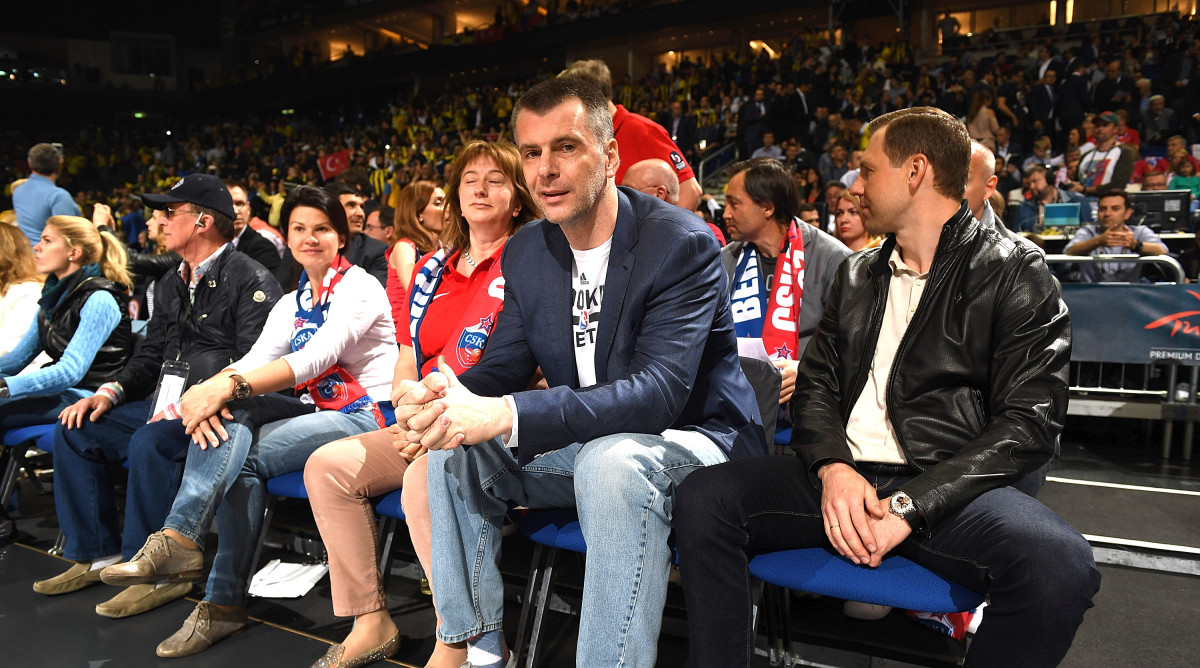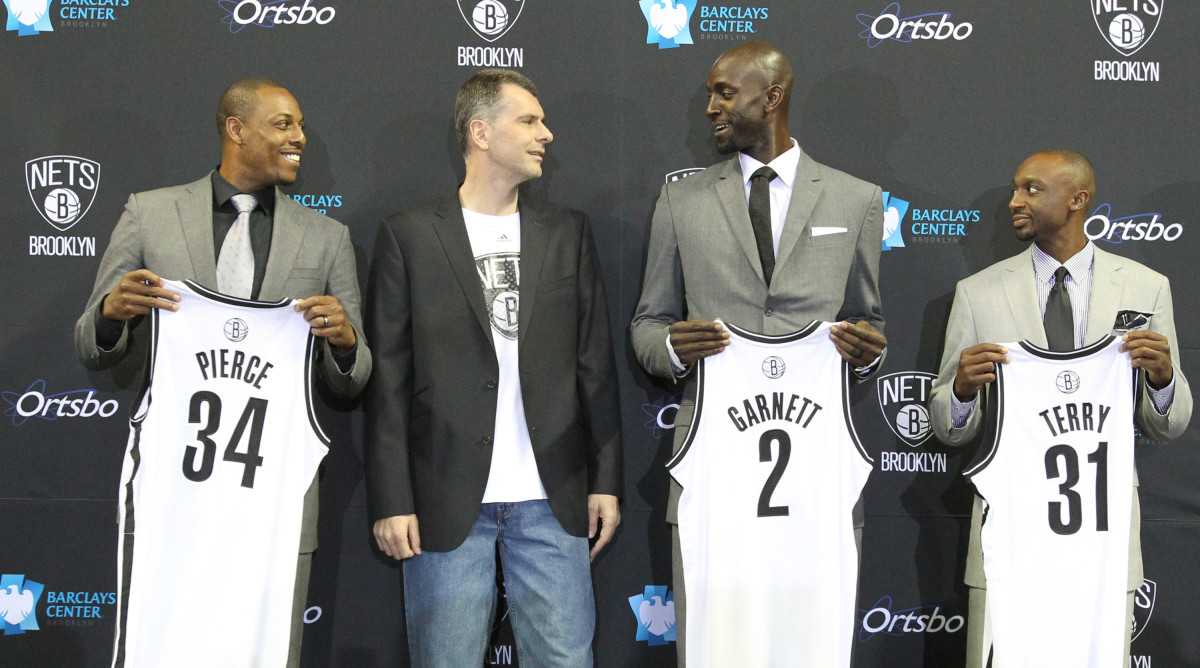Mikhail Prokhorov Leaves a Complicated Legacy With the Nets

Mikhail Prokhorov was an awful NBA owner, or so the final numbers suggest. Prokhorov, whose decade-long stewardship of the Nets will come to an end this month when he officially offloads his remaining 51% ownership of the team to minority owner Joseph Tsai, will forever be the Russian billionaire who attempted to buy an NBA championship, failed and then cashed out when team values peaked.
Prokhorov’s record as an NBA owner: 300-504.
What Prokhorov will sell the team for, after acquiring it for $223 million, plus the team’s debt, in 2009: $2.35 billion.
Said a longtime Nets official, “He went for it, tried to win a championship and left.”
Prokhorov was a good NBA owner, at least by some measurements. “Part of his legacy,” says former Nets executive Bobby Marks, “is that he saved the Nets.” Indeed, Prokhorov took control of the Nets during a U.S. recession. The Barclays Center project—mired in expensive legal battles that ex-owner Bruce Ratner was struggling to afford—was on the brink of collapse. Enter Prokhorov, whose infusion of cash helped salvage the project.

He spent money. Lots of money. He assumed control of a crumbling franchise and declared war on the Knicks, the team across the river. Who can forget Prokhorov’s infamous promise, in 2010, when he vowed the Nets, fresh off a 12-win season, would be NBA champs within five years? Who can forget how the Nets payroll spiked and the record-setting luxury tax checks Prokhorov was willing to write?
The truth about Prokhorov lies somewhere in between.
Prokhorov’s issues as an NBA owner stemmed from his lack of understanding of how to be an NBA owner. In Russia, Prokhorov flourished as the free-spending boss of CSKA Moscow. No salary cap, no problem. He bought the Nets with the same mindset, lacking a clear understanding of just how far spending in the NBA can get you. He demanded the front office chase superstars, ignoring that championship teams are built on more than that.
“I’m not sure if at the beginning [Prokhorov] fully realized how the NBA worked,” says Irina Pavlova, a high-ranking Nets executive from 2010-2017. “At first, it was just throwing money at the problem … but you can’t just throw money at it, and he did learn that.”
Communication wasn’t Prokhorov’s thing, either. NBA owners don’t have to be as visible as Steve Ballmer or Mark Cuban. But they need to be more involved than Prokhorov, whose time spent around the team was limited. “It was like he didn’t care,” the Nets official told SI.com. He didn’t interact with players. Early on, he told people he wouldn’t go in the locker room until the team won a championship. Prokhorov had a handful of lieutenants in Brooklyn, and he encouraged his basketball staff to run decisions through them.
“I wish I had more one-on-one, more direct contact with him,” says ex-Nets GM Billy King. “I had a lot of respect for him. I wish I had more direct conversations with him. He said that to me in our final meeting. In my past experience, when you can talk to your owner, you see their reaction, hear inflection. When you are dealing with him through somebody, you don’t get that. You wonder, did it have to be pushed to get to a go? Or what questions he asked to get to that point? That’s the one thing I didn’t get.”
Added Marks, “A downfall of his was he didn’t challenge you. I think nowadays, if you’re the owner of a team, and you are going to go out and sign a player, I want you to debate me on the merits of a good signing, of a draft pick. He just wasn’t around. He did not get the full hands-on experience, the inner workings of how the basketball operations people worked.”

Prokhorov owns the team’s failures. He has to. But as he exits, does he deserve credit for Brooklyn’s recent success? The Nets are where they are today—a playoff team poised to join the NBA’s elite once Kevin Durant is healthy enough to enter the mix—in part because of Prokhorov. Pavlova describes a more involved Prokhorov in 2016, when the Nets searched for King’s replacement.
“The way Sean [Marks] was hired was a much different process,” says Pavlova. “I give Mikhail a lot of credit. He learned that you can’t buy a championship. He interviewed all the candidates. He was there, asking questions.
“The fact is that you don’t see a lot of owners step back and acknowledge publicly that they made a mistake. He decided to go a different way, build strategically, be smart and be patient. For a guy of his stature, that was very humble of him. He should get a lot of credit for that.”
Under Sean Marks, the Nets have been rebuilt. They have a stable front office and coaching staff. They play in a state of the art arena. They have a player-friendly reputation. They were a playoff team in 2019, and will add All-NBA point guard Kyrie Irving to the mix next season. Durant, who is recovering from Achilles surgery, is a year away. If healthy, the Nets figure to compete for championships.
If they win one, Prokhorov won’t get a ring. He won’t get any credit.
But maybe, just maybe, he deserves some.
